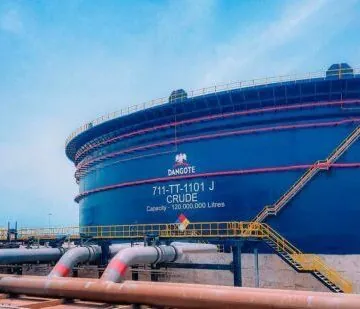Naira-For-Crude: Has our husband gone mad again?
Should a government’s pursuits and policy direction run contrary to a people’s needs and wellbeing? “It must be a policy to support free peoples who are resisting attempted subjugation by armed minorities or by outside pressure.” This statement gave birth to what was later to be known as the Truman Doctrine. What followed the doctrine were two major initiatives: the Marshall Plan to rebuild the shattered economies of Western Europe after the Second World War in 1948, and the creation of NATO in 1949. What can be learnt from this, in short, is that we must not allow a few persons that possessed state powers (whether from outside or within) to make hapless masses suffer untold hardships – in their attempt to make themselves important, all-knowing and all-powerful in policy formulation. Currently in Nigeria and through the activities of MDAs, there are over 200 million people at the mercy of government’s actions and inactions.
During the Expert Group Meeting on Re-inventing Public Enterprise and their Management that held October 2005 in New York about a publication released titled ‘Public Enterprises: Unresolved Challenges and New Opportunities’ which was published by the United Nations in 2008, on the expert group meeting opined that though public enterprises in their usefulness work to address market deficits and capital shortfalls, promote economic development, reduce mass unemployment and ensure national control over the overall direction of the economy, the actions and inactions of these government institutions often fail to properly address market deficits and capital shortfalls, they hardly promote economic development, not to talk of reducing mass unemployment and/or ensuring control over the overall direction of the economy.
In rebuilding the collapsed economy of Nigeria, a major challenge is not only about gap between the dual currency exchange market, about best strategy to achieve the unification an permanently fix the foreign exchange market for the betterment of Nigeria’s economy, it is also about ensuring that the ever-mounting FX demands which far outweigh supplies is nipped, and that Nigerians reduce demands for the forex by reducing importation of finished products, and produce more goods locally for the export markets to boost FX supplies.
When the implementation of the naira for crude policy was approved eight months ago, Nigerians were told that President Tinubu had directed the Nigeria National Petroleum Corporation Limited, to ensure the Naira-for-crude is done with immediate effect. This much was said by the Special Adviser to the President on Revenue, Mr Zacch Adedeji. While briefing the press after the Federal Executive Council (FEC), Zacch Adedeji had said “the attitude of Mr President is thinking outside the box to solve Nigeria’s problem and actually to localise the solutions to Nigeria’s problem. He has approved through the Council that effective immediately, that NNPC get engaged with local refineries and we are starting that with Dangote Refinery. That the sale of crude oil to Dangote Refinery be denominated in Naria and also the sales of by-products from Dangote Refinery to distributors also be conducted in naira.” It was not until October that this ‘effective immediately’ order, a strategic move to reduce pressures on foreign exchange (of which importation of PMS was placed at monthly spending of between 30% and 40% of foreign exchange, a whopping $660 million monthly) saw the light of day.
When the importance of this Naira-for-crude for domestic refinery is crystal clear, one wonders why what ought to be a policy-in-perpetuity has to be for an initial six months and nothing meaningful was done for its rollover until DR issued a press statement of its bid to suspend naira sale of PMS.
. Ola Emmanuel is a business planning consultant.


